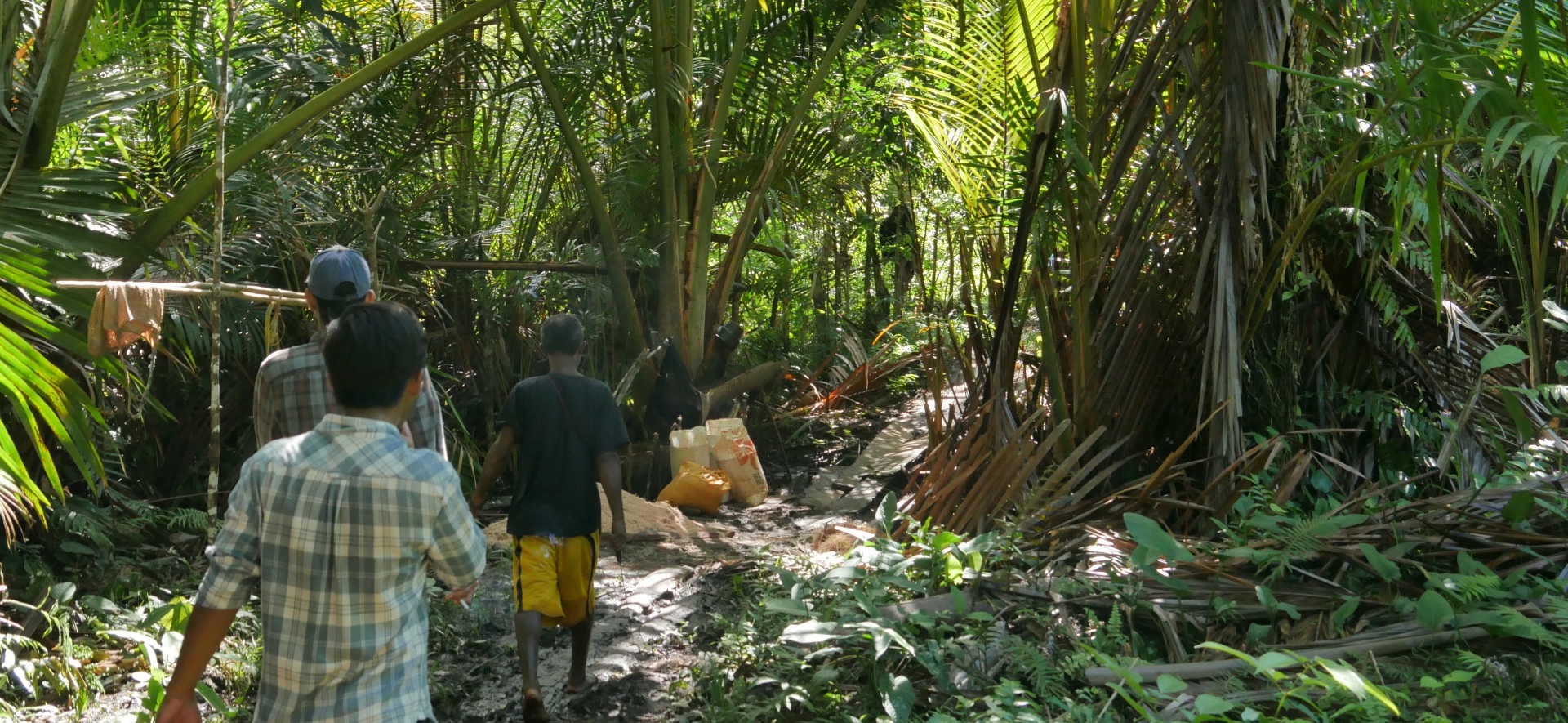
In February, a team of Kopernik analysts traveled to the provinces of Papua, West Papua, and West Kalimantan to gain firsthand insight into the needs of smallholder farmers in the areas. From crossing through rivers to learn about the lives of sago farmers in Papua to delving into a rubber plantation in West Kalimantan, the Unmet Needs Papua Kalimantan project seeks to understand issues farmers face to stay competitive in the agricultural value chain.
Farmers in these provinces are at an economic disadvantage in the agricultural value chain. They invest the highest level of manual labor in the chain, only to receive low prices from traders. This has partly been due to a lack of information on market prices, different quality of crops, and a homogenous network which tends to circulate similar information.
Furthermore, any gains from their harvest are typically just enough to cover the cost of production, leaving a meager amount to support their daily household needs. They are then pushed to find other means of work to supplement their income.
As the main player in crop production, the welfare of smallholder farmers is a critical issue. While there has been increasing efforts to improve their livelihood and empower them in moving towards a sustainable crop production, inconsistencies between the support provided and the actual needs of farmers remain prevalent. Through field research and in-depth analysis of seven selected commodities common to the above-mentioned areas, the upcoming Unmet Needs Report 2018 aims to shed light on these gaps and provide a better understanding on the needs of farmers across these provinces.
In the spirit of collective effort to find what works, Kopernik will also organize workshops to discuss the report in Sanggau, West Kalimantan and Jayapura, Papua – on 18 July and 26 July, respectively – with the participation of farmers, government officials, non-government organizations, and academics.
Kopernik recognizes that developing effective solutions to empower smallholder farmers will require active participation from all related stakeholders. A solution in the form of technology intervention, for instance, cannot be effective if farmers lack the capacity, and capacity building will not be optimal without the market access. Similarly, improved market access will not be of much benefit if farmers are not equipped with the appropriate technology to improve their productivity.
The workshops aim to serve as a platform to discuss current challenges and potential solutions for smallholder farmers, producing a collective action plan to move towards a sustainable agriculture sector beneficial for all.
Kopernik's Unmet Needs Report 2018 is published! For more insights on the unmet needs of smallholders farmers in Papua, West Papua, and West Kalimantan, read the full report here.
Kopernik is proud to partner with the David and Lucile Packard Foundation and the Ford Foundation, which are members of the Climate and Land Use Alliance (CLUA). CLUA is a collaborative initiative aiming to realize the potential of forested and agricultural landscapes to mitigate climate change, benefit people, and protect the environment.


